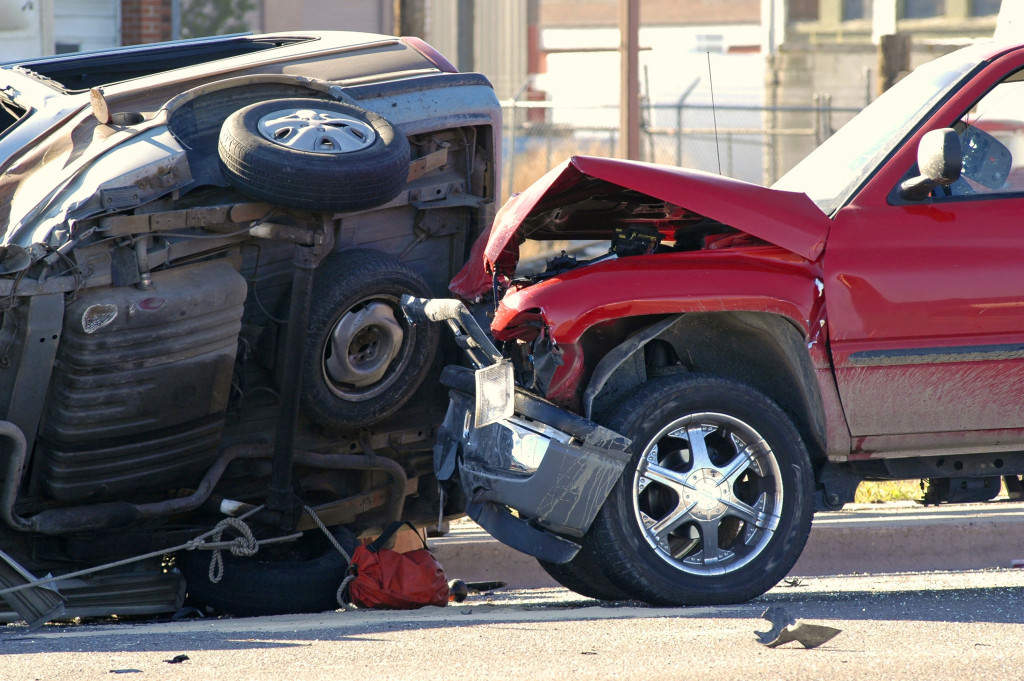Anyone who has experienced a car accident will tell you that it can happen in the blink of an eye. You’re driving along and suddenly you’ve been hit—and perhaps you get injured. It’s unfortunate to have to “think like a lawyer” in a case like this, but if the accident isn’t your fault and you’re worried about big legal or property damage bills, you should be as meticulous as possible in taking your next steps.
Here are several things to do to protect yourself and your rights in the case of a car accident:

Visit the doctor.
If you’ve been injured but no ambulance is called, make sure to visit a hospital or doctor as soon as possible after the accident. Don’t overlook injuries like headaches or back pain, as those might very well be due to the accident. You’ll need a record of your injuries if you end up having to pursue a lawsuit after the fact, and more importantly, you want to take care of your health and your injuries appropriately.
Collect insurance information.
No matter what, insist on getting driver’s license and insurance information from the other driver. If the police are present, they’ll help facilitate this, but if they are not, you should still get contact information, a driver’s license number, the make and license plate number of the other vehicle, and insurance information on the diver.
Write down everything you can about the incident.
As soon as you have access to a pen and piece of paper (or even better, a computer), document everything you can: your injuries, the specific damages to your vehicle and the other vehicle, how the accident transpired in your memory, and any other details.
Take pictures.
A picture is worth a thousand words, as they say. If you can, take photos of the scene of the accident with your smartphone, including photos of the damaged areas of your car and those of the other driver’s car.
Get witness contact information.
It’s not your job to interview witnesses when you’ve been in an accident, but if anyone comes to your aid or happens to be on the scene while you’re there, ask if you could get their contact information if needed for the future. This will be helpful later on should your attorney or the police ask for details that you might not notice or remember.
Report the accident to the police.
Even if the accident is minor, it’s important to have a police report filed. Be sure to call the police as soon as possible after the accident if circumstances prevented you from calling them at the scene of the accident.
Keep a timeline.
Having a record of the details of your accident is important, but so is having notes of what transpires thereafter. If you visit the doctor, an attorney, or a police station, take notes on those conversations and keep them in your files with dates, times, and names.
Keep detailed health records.
If your injuries require that you visit one or more doctors multiple times, get copies of your doctor’s notes and records for your own files and keep notes of your own. At a minimum, keep a dated log of your pain, treatment, doctor visits (names and dates), and medication you’re taking. Even better, keep a journal of how your injuries impact your daily life and your ability to work.
Collect and Keep Your Accident Information
Of course, you’ll also want to report your accident to your own insurance agent, but it’s always helpful to have as much information as possible about the accident: the police report number, the other driver’s insurance information, and any other details. They will make sure you’re clear on your insurance coverage and will help you take the proper steps to get your car repaired.
Here at Resolution Funding, we see far too many cases where the injured party did not collect information to help their case. Keep a list in your glove compartment for future reference. If you’re ever in such a situation, remember that the more information you have, the better—and there’s truly never too much! If we can answer any questions, please call us at 855-529-2382. And, if you need funding, please fill out this form, and we’ll be in touch!